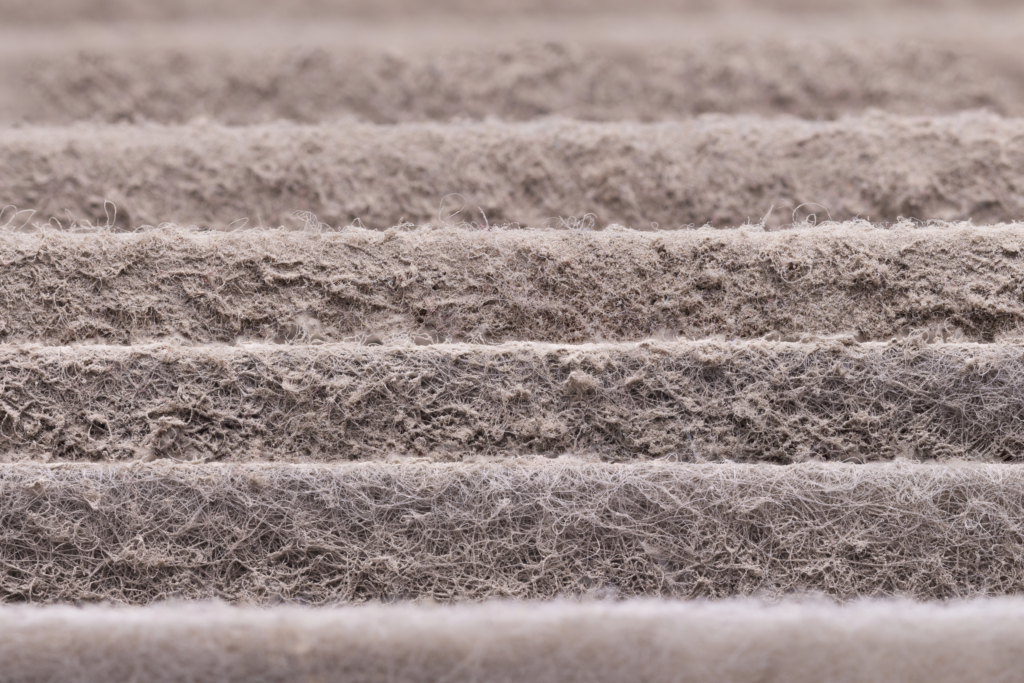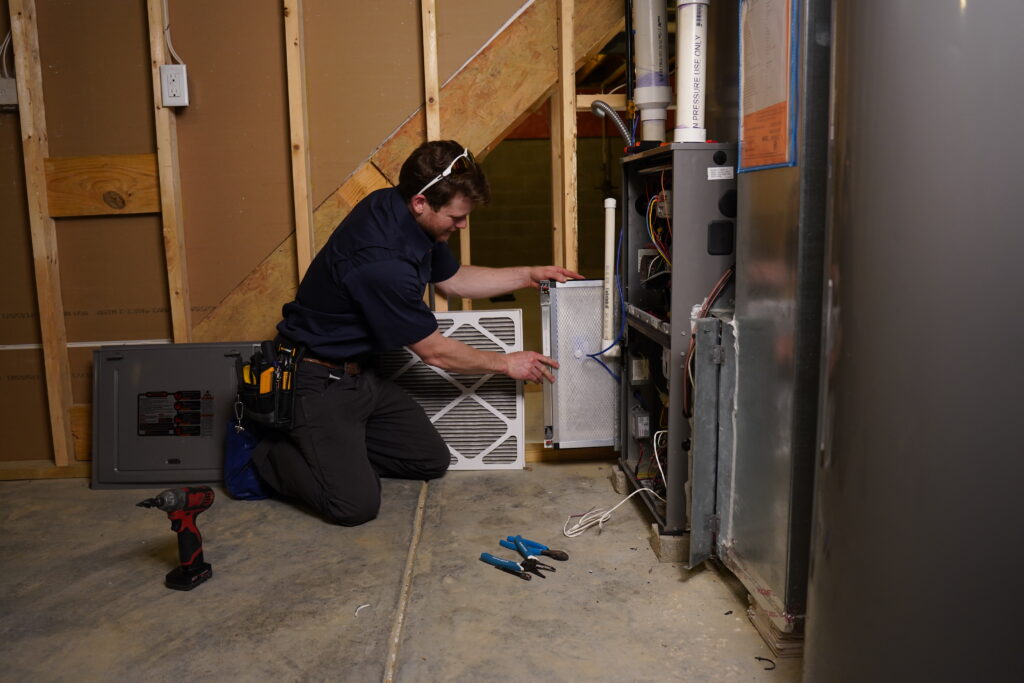Dirty air filters can result in more significant HVAC issues than one might anticipate. There are numerous surprising consequences that can arise from having an excessively clogged filter. Have you considered what occurs when your HVAC air filters remain unchanged for extended periods? While it may seem like a minor issue, it’s important to recognize the role of air filters and their deliberate design within your HVAC system. Their function is indeed quite intentional.
Air filters are designed to protect your HVAC system by filtering out dust, pollutants, and other airborne particles from your home, preventing these elements from entering the system and potentially causing larger issues. Their function serves a dual purpose: when an air filter effectively performs its intended role, it also prevents unwanted airborne particles from circulating throughout your home, ensuring a healthier environment for you and your family.
Dirty air filters can definitely impact your indoor air quality and overall health. So, join your experts at Washington Court House Heating & Cooling today as we uncover some slightly scary truths about the consequences of not changing an air filter as often as necessary.

What Can Happen When You Don’t Change Your Clogged or Dirty Air Filters?
- Reduced Indoor Air Quality: A blocked air filter significantly hampers your HVAC system’s ability to function effectively, leading to a decline in your home’s indoor air quality (IAQ). The following aspects are negatively impacted as a result:
- Circulation of Pollutants: When an air filter becomes overloaded with dust and other airborne particles, it permits harmful pollutants and contaminants to circulate freely throughout your home, where they are inhaled by you and your family.
- Accumulation of Dust and Debris: One immediate consequence of a clogged air filter is the buildup of dust and debris within your home. You may observe dust collecting on furniture and HVAC vents, which not only affects cleanliness but also increases the inhalation of particles.
- Spread of Germs and Bacteria: A less apparent yet serious outcome of a congested air filter is the proliferation of germs and bacteria. A dirty filter can serve as a breeding ground for harmful microbes, which can spread throughout your home, exacerbating existing respiratory conditions.
- Increased Allergy Symptoms: Additionally, obstructed air filters may contribute to various health issues, ranging from minor ailments like sore throats to more serious conditions such as respiratory infections. If you are experiencing allergen-related issues, regardless of your attempts to find relief, it may be prudent to check your air filter. Symptoms such as sneezing, coughing, and itchy eyes can be intensified due to poor indoor air quality.
- Unpleasant Odors: A blocked air filter can result in musty or foul odors permeating your home, depending on the contaminants trapped inside. Regularly changing your air filter can help you avoid these unpleasant situations.
- Increased Energy Costs: When your HVAC system must exert more effort to push air through a clogged filter, energy consumption inevitably rises. According to research by the Department of Energy, replacing a dirty filter with a clean one can reduce your air conditioner’s energy usage by 5% to 15%.
- Greater Potential for System Failure: Finally, neglecting timely air filter changes can lead to more than just diminished air quality and elevated energy bills. If filters remain unchanged, your HVAC system will operate under excessive strain, potentially resulting in costly repairs in the future. This discussion merely scratches the surface of the issues that can arise from clogged air filters; numerous other avoidable problems may also occur. Therefore, we strongly recommend staying vigilant about air filter maintenance.
When Should Clogged or Dirty Air Filters Be Replaced?
Now that you understand the consequences of a clogged air filter let’s discuss the recommended frequency for changes. According to industry standards, it is generally advised to replace your air filters every 30 to 90 days. However, here are a few additional tips regarding air filter maintenance.
- Seasonal Changes: A practical approach to tracking air filter replacements is to change them at the beginning of each season. Many homeowners initiate a deep cleaning of their homes with the change of season, so incorporating this HVAC task into your routine can help ensure it’s not overlooked.
- After Renovations: If you frequently engage in DIY projects or home renovations, remember that these activities can generate significant dust and debris, which may quickly clog your air filter. Following these projects, we suggest replacing your filters with fresh ones.
- For Pet Owners: At Washington Court House Heating & Cooling, we recognize that pets are cherished family members. However, it’s important to note that households with multiple pets should change their air filters more frequently, as pet dander and fur can accumulate quickly, potentially impacting your home’s indoor air quality.

Maintaining a clean air filter is essential for the optimal performance of your HVAC system and for ensuring good indoor air quality. By identifying when your air filter is dirty or becomes clogged and knowing how to address it, you can effectively promote a healthier environment for both your family and your HVAC system.
Washington Court House Heating & Cooling is only a phone call away. We’ll gladly help tackle any HVAC scare that dares come your way! Call today at (740) 281-5312, or schedule an appointment online now by clicking here!





